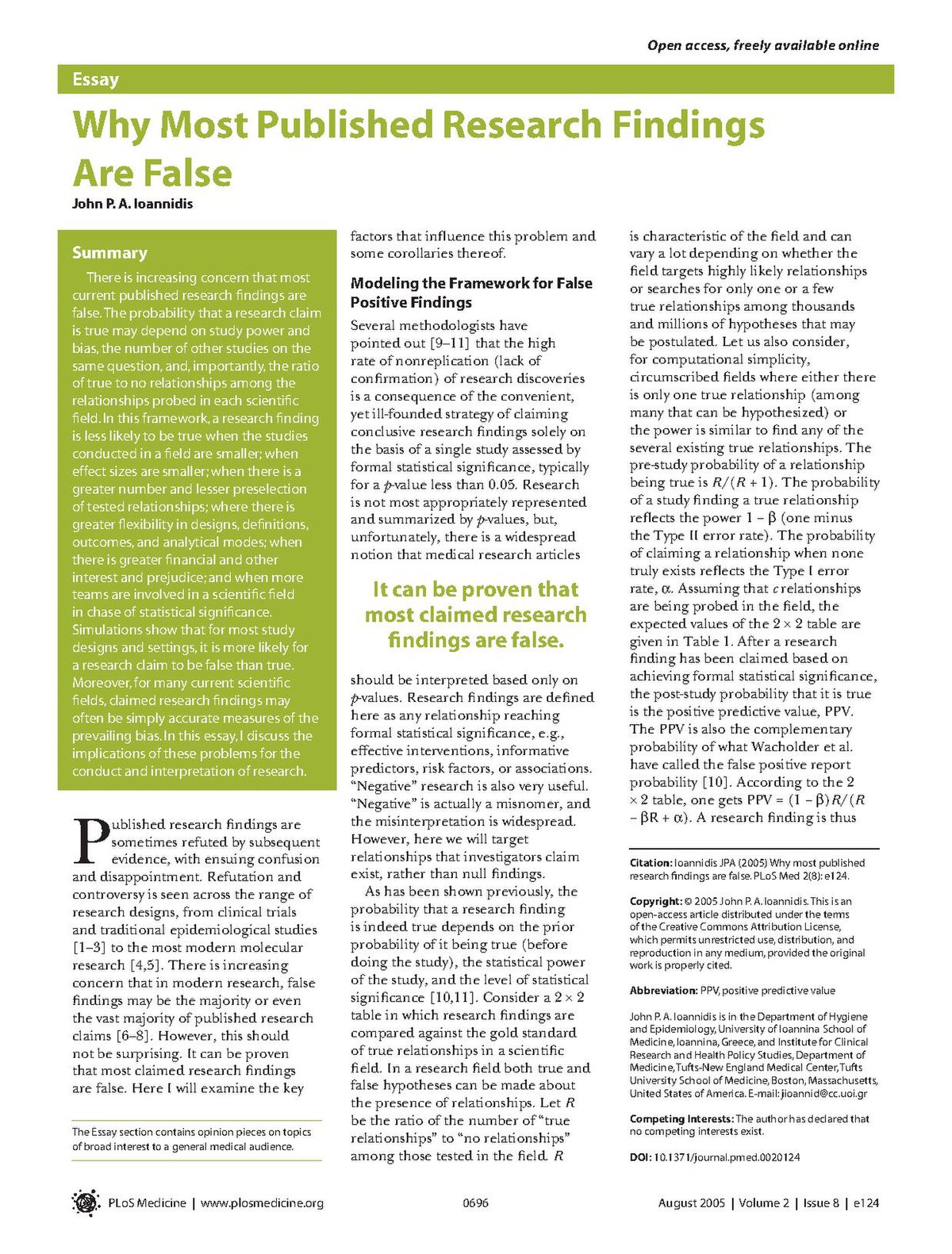Over the years, as debates go on on the science side of things, there's an awful lot of science reliance with follow up screaming, "This is science, this is from all the scientists, you denier".
But in the early 2010's the Replication Crisis was coined, and although it primarily involved Psychology and Medicine, all the science disciplines across the board suffers from it two.
In short, it's where scientists often struggle to or can't repeat their results, others struggle to or can't repeat other scientist's experiments achieving the same results, at peer review the experiments are not replicated, and what happens is, errors just get copied and pasted.
The environmental science doesn't escape this problem either.

 en.m.wikipedia.org
en.m.wikipedia.org
A 2016 survey by Nature on 1,576 researchers who took a brief online questionnaire on reproducibility found that more than 70% of researchers have tried and failed to reproduce another scientist's experiment results (including 87% of chemists, 77% of biologists, 69% of physicists and engineers, 67% of medical researchers, 64% of earth and environmental scientists, and 62% of all others), and more than half have failed to reproduce their own experiments. But fewer than 20% had been contacted by another researcher unable to reproduce their work. The survey found that fewer than 31% of researchers believe that failure to reproduce results means that the original result is probably wrong, although 52% agree that a significant replication crisis exists. Most researchers said they still trust the published literature.
So can I ask, for those wanting to rely on a scientist quote, graph, experiment etc.. could you please confirm that you undertook the same experiment and achieved the same results. People are expecting me to believe what they post is fact, where a big percentage could and is actually wrong.
But in the early 2010's the Replication Crisis was coined, and although it primarily involved Psychology and Medicine, all the science disciplines across the board suffers from it two.
In short, it's where scientists often struggle to or can't repeat their results, others struggle to or can't repeat other scientist's experiments achieving the same results, at peer review the experiments are not replicated, and what happens is, errors just get copied and pasted.
The environmental science doesn't escape this problem either.

Replication crisis - Wikipedia
A 2016 survey by Nature on 1,576 researchers who took a brief online questionnaire on reproducibility found that more than 70% of researchers have tried and failed to reproduce another scientist's experiment results (including 87% of chemists, 77% of biologists, 69% of physicists and engineers, 67% of medical researchers, 64% of earth and environmental scientists, and 62% of all others), and more than half have failed to reproduce their own experiments. But fewer than 20% had been contacted by another researcher unable to reproduce their work. The survey found that fewer than 31% of researchers believe that failure to reproduce results means that the original result is probably wrong, although 52% agree that a significant replication crisis exists. Most researchers said they still trust the published literature.
So can I ask, for those wanting to rely on a scientist quote, graph, experiment etc.. could you please confirm that you undertook the same experiment and achieved the same results. People are expecting me to believe what they post is fact, where a big percentage could and is actually wrong.